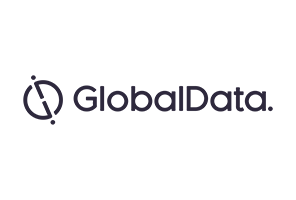
By value, biologic therapies drive market growth across immunology indications. Notable brands within the biologics class with uses that span multiple autoimmune diseases include AbbVie’s Humira (adalimumab), Amgen / Pfizer’s Enbrel (etanercept), and Johnson & Johnson’s (J&J’s) Remicade (infliximab). GlobalData estimates that the immunology biologics market generated over $99.5bn in 2016.
With so much at stake for innovator companies once their biologics are no longer patent protected, many of these companies have been strategically positioning themselves to minimise the decline in their revenue from biosimilar competition. The strategies being used include leveraging in-house expertise to develop biosimilars, as shown by Pfizer, and entering into alliances, acquisitions, and mergers with other companies to develop and market biosimilar versions of currently marketed biologics. This was shown by Amgen’s efforts with aiming to bring Amjevita, a biosimilar of adalimumab, to the autoimmune marketplace.

Discover B2B Marketing That Performs
Combine business intelligence and editorial excellence to reach engaged professionals across 36 leading media platforms.
Table 1 provides GlobalData’s assessment of the top 20 immunology companies’ biologics and biosimilars portfolios in 2016. It is based on current product pipelines, biologics, and biosimilars that could be marketed by these companies in 2026.
Based on this analysis carried out in May 2017, Novartis is leading the pack through its biosimilars division, Sandoz, in terms of the number of products that the company has in its portfolio, with approved biosimilar Erelzi (etanercept) and four biosimilars in late-stage clinical development.
Other key contenders include Merck, Amgen, and Pfizer. Veterans in the autoimmune area, Merck and Pfizer, have strategically entered the biosimilar market through partnerships with leading biosimilar developers. Merck co-promotes Benepali (etanercept biosimilar) and Flixabi (infliximab biosimilar) worldwide with Samsung Bioepis, while Pfizer markets the first approved biosimilar in the US, Inflectra (infliximab biosimilar), through its acquisition of Hospira.
Experienced biologics developer Amgen has secured US and EU approval of the first adalimumab biosimilar, Amgevita / Amjevita. With an infliximab biosimilar (ABP 710) and rituximab biosimilar (ABP 798) currently in its late-stage development pipeline, Amgen is well positioned to remain a key player in the autoimmune biosimilars market.

US Tariffs are shifting - will you react or anticipate?
Don’t let policy changes catch you off guard. Stay proactive with real-time data and expert analysis.
By GlobalDataOther key mentions include Biogen, Celltrion, and Samsung Bioepis, which have ongoing biosimilar development programs for immunology diseases.
Despite high research and development (R&D) costs, developing biologics and biosimilars will remain a key focus in the portfolios of autoimmune players. This is due to the gains that can be made in this space. GlobalData estimates that the autoimmune biosimilars market will reach more than $25bn by 2026.
Table 1: Portfolio Assessment of Biologics and Biosimilars of Top 20 Immunology Companies, May 2017





